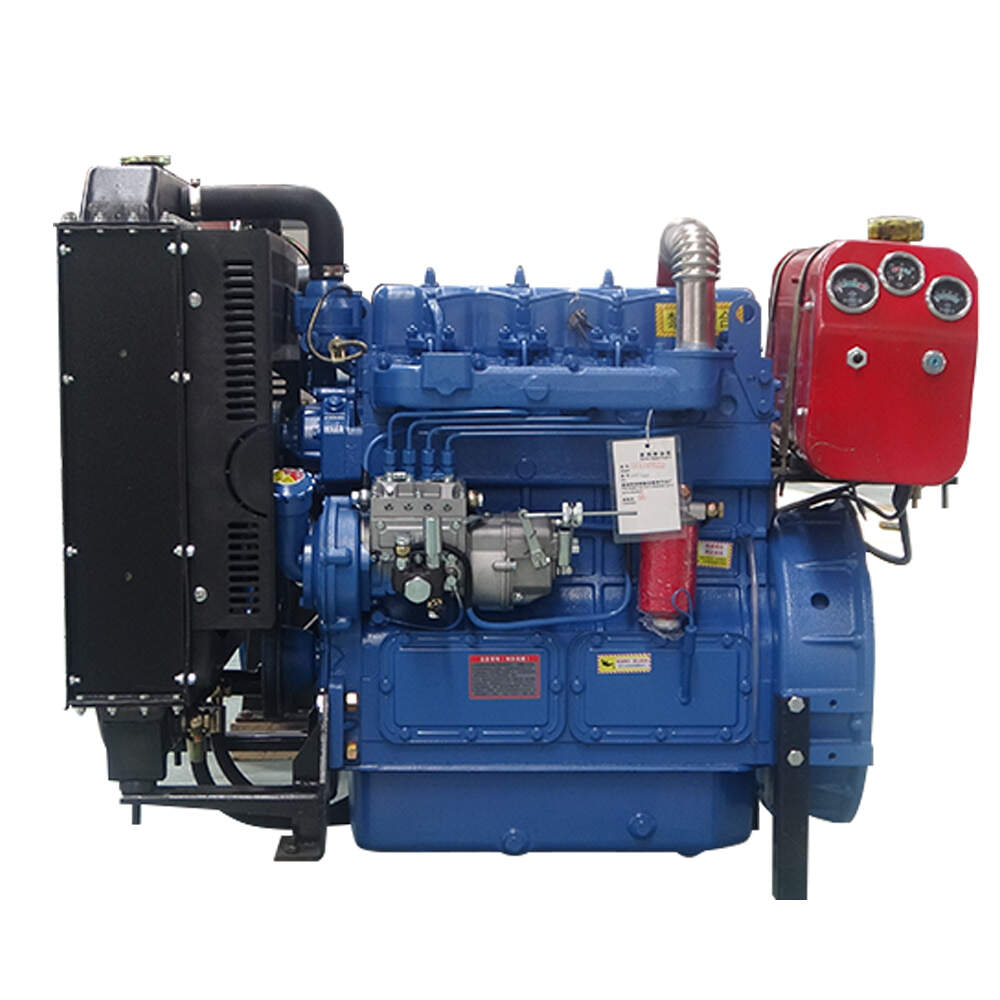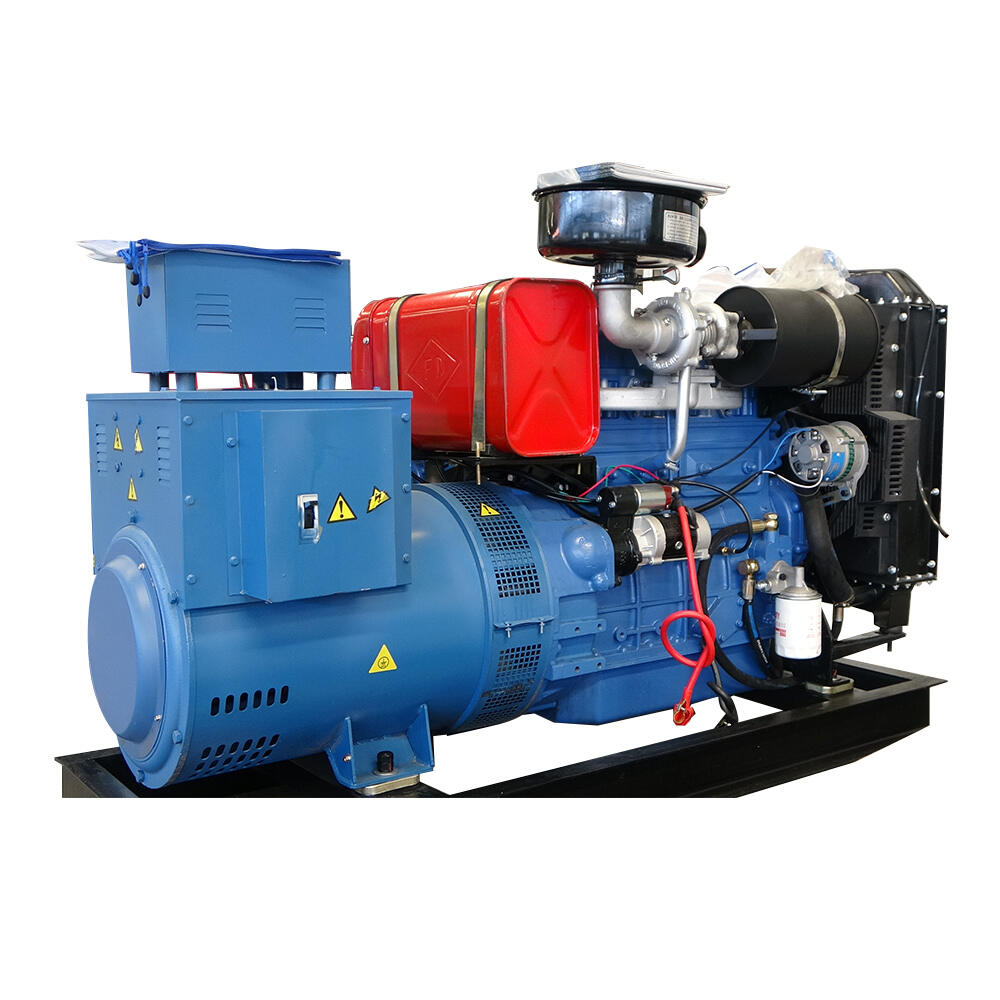Overgang til generator-teknologier med lav emission
Inverter-generatorer: Præcision og brændseleøkonomi
Inverter-generatorer er faktisk et mirakel inden for generatorteknologi, som kombinerer ren og effektiv strømfremstilling ved at omdanne jævnstrøm til vekselstrøm med højeste effektivitet. Resultatet er, at disse inverter-generatorer er mindre, lettere og stille i forhold til traditionelle generatorer og er ideelle at bruge, når man er ude og rejser, undervejs eller har brug for mobilitet i arbejdet. Derudover reducerer disse generatorer brændselsforbruget med op til 50 % sammenlignet med almindelige generatorer, hvilket gør dem både økonomiske og mere miljøvenlige. Den præcise strømregulering og den lille størrelse gør det muligt for inverter-generatorer at reducere risikoen for strømspidser og beskytte følsomme apparater mod potentiel skade. En inverter-generator med ekstremt ren strøm kan give os en sikker og pålidelig strømforsyning. hjem , når man er ude og rejser, undervejs eller har brug for mobilitet i arbejdet. Derudover reducerer disse generatorer brændselsforbruget med op til 50 % sammenlignet med almindelige generatorer, hvilket gør dem både økonomiske og mere miljøvenlige. Den præcise strømregulering og den lille størrelse gør det muligt for inverter-generatorer at reducere risikoen for strømspidser og beskytte følsomme apparater mod potentiel skade. En inverter-generator med ekstremt ren strøm kan give os en sikker og pålidelig strømforsyning.
Solkompatible generatorer til hybridenergiløsninger
Hybrid-klare generatorer kan arbejde sammen med solpaneler for at skabe en bæredygtig energimix. Ved at udnytte sollys samt din traditionelle strømforsyning kan disse generatorer spare dig for penge på elregningen, mindske afhængigheden af olie samt reducere risikoen for et sammenbrud i elnettet. Studier har vist, at anvendelse af solkompatible generatorer kan producere nul udledninger, hvilket er vigtigt for den samlede reduktion af CO2-udledninger for både virksomheder og private. Denne overgang til solvenlig teknologi har dybdegående konsekvenser for miljøet samt for brugere af elgeneratorer, som ønsker energi-uafhængighed, da strøm ofte er et krav for dem, der ønsker at investere i en løsning med vedvarende energi på lang sigt. Overgang til bæredygtig energi. At fremme en miljøvenlig fremtid betyder at drage fordel af hybridenergi og hvordan den bringer anvendelsen af energi i hjem og virksomheder i tråd med global bæredygtighed.
Overgang til rene brændstofalternativer
Naturgas og propangas: Reducerede drivhusgasemissionsmuligheder
Naturgas og propangas er ved at blive et alternativ til konventionelle petroleumsbaserede brændstoffer, såsom diesel og benzin, delvist på grund af deres lavere carbonindhold. Ejer af elgeneratorer bruger naturgas til at producere elektricitet, fordi den udleder op til 30 % mindre CO2 end diesel og benzin, hvilket gør den nyttig i forbindelse med reduktion af drivhusgasser. Propangas er også kendt som et grønt valg, da det er en lavemissionsløsning og ofte bæredygtigt fremstillet – alt sammen gør det til en attraktiv løsning. Ved at skifte til disse rene brændstoffer kan virksomheder navigere i tætte miljøregler og appellere til øko-bevidste kunder. Der findes hundredvis af dokumenterede eksempler, hvor virksomheder har oplevet en betydelig reduktion i både omkostninger og miljøpåvirkning som følge af overgangen til naturgas og flydende petroleumsgas.
Biobrændstoffer og vedvarende diesel: Bæredygtige forbrændingsvalg
Processen Produktion af biobrændstoffer og vedvarende diesel er et vigtigt skridt fremad, da den bruger organiske materialer som energikilde. Disse materialer er også typisk tilgængelige lokalt, hvilket understøtter bæredygtige initiativer i nabolaget. For brugere af elgeneratorer vil de, der er interesserede i vedvarende diesel, også bemærke, at vedvarende diesel ligner almindelig diesel – blot med den ekstra fordel af lavere emissioner gennem hele dens levetid. Hvis det er godt nok til Fortune 100-virksomheder, burde det sandsynligvis også være godt nok for resten af os. Biobrændstoffer spiller en værdifuld rolle i at reducere CO₂-udledningen i transport- og kraftsektoren, som angivet i forskellige miljørapporter, hvor behovet for øget anvendelse fremhæves. Denne udvikling hjælper ikke kun med at sikre overholdelse af regler, men fastslår også en branchestandard, når der investeres i vedvarende energi.
Optimering af generator-effektivitet for minimal spild
Smart Laststyring til reduktion af tomgangskørsel
En succesfuld tilgang til at forbedre generatorers ydeevne er konceptet med smarte laststyringssystemer. Belastningsreduktion og lastoptimering mellem kraftværker bliver gjort enkel og effektiv for generatorbrugere. Når det er fuldført, giver de tekniske noter detaljer om, hvordan avanceret laststyring kan reducere tomgangskørsel med op til 40 %, hvilket resulterer i betydelige brændstinsbesparelser. Industrier, der anvender disse systemer, har oplevet øget produktivitet og lavere vedligeholdelsesomkostninger. Det er også værd at bemærke, at smarte systemer udfører analyse af data i realtid, hvilket betyder, at personer kan træffe beslutninger om energiforbruget på et informeret grundlag. At reducere tomgangskørsel handler ikke kun om at spare penge, det handler også om at gøre noget for miljøet.
Korrekt dimensionering af generatorer til energibehov
Det er vigtigt at sikre, at generatorernes størrelse svarer til den mængde energi, der er nødvendig, så effektivitet og spild kan minimeres. En korrekt dimensioneret generator giver optimal ydelse, undgår lav belastning eller høj belastning, især strømafbrydelser, og forlænger udstyrets levetid. Et egnet energiopgørelsesaudit kan hjælpe en virksomhed med at vælge en generator, der matcher dets belastningsbehov. Ifølge eksperter kan en for stor generator forbruge op til en fjerdedel mere brændstof, hvilket svarer til højere omkostninger og større miljøpåvirkning. At vælge rigtig størrelse undgår overbelastning, og det betyder reducerede vedligeholdelses- og driftsomkostninger. Generatoren er i sidste ende den næstmest billige brændstof, man kan købe – kun overgået af at bruge mindre strøm, når elpriserne stiger.

Integrering af smarte systemer til energibesparelse
Automatiserede IoT-løsninger til realtidsovervågning
Integrering af IoT i generator-systemer muliggør realtidsmonitorering, som væsentligt forbedrer vedligeholdelses- og driftskvaliteten. IoT-systemer sikrer, at elgeneratorer yder optimalt, idet de leverer realtidsdata, som betydeligt reducerer spildt energi. Forskellige anvendelseseksempler har vist, at ved at få detaljerede indsigter i anvendelsesmønstre og energiforbrug gennem IoT-løsninger kan ledere og beslutningstagere støttes markant i deres beslutningstagning. Derudover bringer anvendelsen af denne teknologi virksomheder i tråd med moderne løsninger for at sikre kundetilstrækning, især hos økologisk bevidste kunder. Det handler ikke kun om at optimere ydelsen, men også om at omfavne fremtidens teknologitrends, som er afgørende for langsigtet virksomhedssucces – virksomheder, der integrerer IoT, opnår ikke blot optimering, de er også foran for kurven.
Nettilkoblede systemer og synergien af vedvarende energi
Grid-tie-systemer er en moderne tilgang til energiproduktion og -forsyning i æraen med bæredygtige energikilder, som bruger generatorer til at forbinde sig selv og elektriske belastninger til et netværk. Disse systemer tillader udveksling af energi, hvilket reducerer afhængigheden af fossile brændstoffer og bidrager til at forbedre bæredygtighedsindikatorer. Studier viser, at anvendelsen af grid-tie-systemer hjælper med at styrke energisikkerhed og modstandsdygtighed, hvilket er afgørende, da virksomheder stadig mere ser på vedvarende energi som deres løsning. Med sin voksende form kompletterer GRID-tie's synergivirkning en cirkulær energiøkonomi, idet den minimerer spild og maksimerer effektivitet. Da det globale kommercielle marked fortsat arbejder mod en mere bæredygtig fremtid, er grid-tie soluløsninger en vejkort til lavere energiforbrug og mindre miljøpåvirkning.
Vedligeholdelsesstrategier for miljøvenlig ydelse
Sikring af ren forbrænding gennem regelmæssig service
Generatorer kræver regelmæssig vedligeholdelse for at kunne brænde rent, og effektiv forbrænding kan markant reducere emissioner og affald. Ren forbrænding kan maksimere levetiden og sikre driftstid for generatoranlæg, der er i kontinuerlig drift. Virksomheder, der følger regelmæssige vedligeholdelsesprogrammer, oplever bedre driftsresultater, da disse programmer kan forudsige fejl og reducere nedetid. Ved at oprette en forebyggende vedligeholdelsesrutine kan elgeneratorer understøtte grønne driftsoperationer, hvilket resulterer i mindre miljøpåvirkning.
Forlængelse af levetid for at reducere produktionsaftryk
At investere i almindelige generatorservices og vedligeholdelse øger ydelsen markant og forlænger levetiden. Faktisk reducerer den lange levetid af elektriske generatorer årlig produktion og dermed også industrien miljøpåvirkning. Forskning viser, at godt vedligeholdte systemer kan vare mere end dobbelt så længe som forsømte systemer, hvorfor det er i din egen interesse at vedligeholde dit system. Ved at bruge holdbare materialer og planlægge på forhånd skaber man mindre affald og demonstrerer samtidig en stærk bæredygtighedsetik. Ved at arbejde for lang levetid gennem holdbar vedligeholdelse, kan man bidrage til at reducere deres produktionsaftryk og fremme grønne metoder.
Ofte stillede spørgsmål
Hvad er invertergeneratorer?
Invertergeneratorer konverterer jævnstrøm til vekselstrøm med stor nøjagtighed, hvilket gør dem mindre, mere stille og mere bærbare sammenlignet med traditionelle modeller. De sparer op til 50 % i brændstof og leverer pålidelig energi, som beskytter følsomme udstyr.
Hvordan fungerer solkompatible generatorer?
Generatorer, der er kompatible med solenergi, udnytter både sol- og konventionel energi og sikrer derved en bæredygtig energiblanding. De reducerer afhængigheden af fossile brændstoffer og sænker elomkostningerne samtidig med, at de bidrager til nul emissioner.
Hvorfor anses naturgas og propangas for rene brændstofalternativer?
Naturgas udleder mindre CO2 end diesel og benzin, mens propangas producerer færre emissioner og ofte har en bæredygtig kilde. Begge hjælper med at overholde miljøregler og reducere drivhusgasser.
Hvad er fordelene ved biobrændstoffer og vedvarende diesel?
Biobrændstoffer og vedvarende diesel udnytter organiske materialer og giver derved reducerede emissioner samt støtte til lokale bæredygtige praksisser. De hjælper med at opfylde regelværket og er gavnlige for dekarbonisering i sektorer som transport.
Hvordan kan generatorer optimere effektiviteten gennem smart belastningsstyring?
Smarte belastningsstyringssystemer balancerer energiforbruget og reducerer unødvendig drift med op til 40 %. Disse systemer forbedrer driftseffektiviteten og tilbyder analyse af data i realtid til træffelse af informerede beslutninger om energiforbrug.
Hvad er betydningen af korrekt dimensionerede generatorer?
Korrekt dimensionering sikrer, at generatorer opfylder specifikke energibehov, hvilket forbedrer effektiviteten og reducerer brændstofforbruget. For store generatorer kan spilde brændstof og påvirke både omkostninger og miljø.
Indholdsfortegnelse
- Overgang til generator-teknologier med lav emission
- Overgang til rene brændstofalternativer
- Optimering af generator-effektivitet for minimal spild
- Integrering af smarte systemer til energibesparelse
- Vedligeholdelsesstrategier for miljøvenlig ydelse
-
Ofte stillede spørgsmål
- Hvad er invertergeneratorer?
- Hvordan fungerer solkompatible generatorer?
- Hvorfor anses naturgas og propangas for rene brændstofalternativer?
- Hvad er fordelene ved biobrændstoffer og vedvarende diesel?
- Hvordan kan generatorer optimere effektiviteten gennem smart belastningsstyring?
- Hvad er betydningen af korrekt dimensionerede generatorer?

